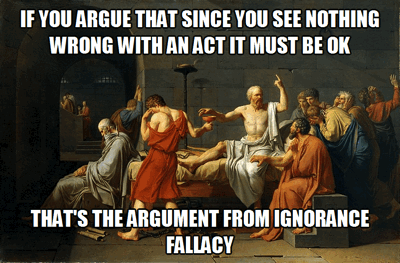In the 1888 encyclical Officio Sanctissimo, Pope Leo XIII encouraged Catholic participation in the legal system to change unjust laws. Part of this document asserts:
[12] Effectively the laws give Catholics an easy way of seeking to amend the condition and order of the State and to desire and will a constitution which, if not favourable and well-intentioned towards the Church, shall at least, as justice requires, be not harshly hostile. It would be unjust to accuse or blame any one amongst us who has recourse to such means, for those means, used by the enemies of Catholicity to obtain and to extort, as it were, from rulers laws inimical to civil and religious freedom, may surely be used by Catholics in an honourable manner for the interests of religion and in defence of the property, privileges, and right divinely granted to the Catholic Church, and that ought to be respected with all honour by rulers and subjects alike.
Claudia Carlen, ed., The Papal Encyclicals: 1878–1903 (Ypsilanti, MI: Pierian Press, 1990), 154.
I’m struck by differing assumptions compared to the American experience of the last few years. Courts strike down laws passed to defending moral rights, The government vetoes or ignores laws they swore to uphold (without suffering repercussions for dereliction of duty). In fact, executive orders and judicial diktats deny believers the right to promote laws benefiting the common good, and target them for refusing to accept the moral changes the political and cultural elites impose on society.
Leo XIII wrote this to the Catholics in Bavaria during the Kulturkampf encouraging them to use the same system to lift oppression that their opponents used to impose it. That says something ironic about America today. That irony is America today is less just in some legal structures than Imperial Germany was 120 years ago! When legal structures are unjust we can no longer rely on our checks and balances to defend the rights of citizens who hold views unpopular with political and cultural elites.
This shouldn’t surprise us. Americans have an ugly habit of setting aside their system of justice when they deem a targeted group unworthy under the law. The obvious example is that of slavery and segregation. But we could also include the violations of treaties with Native Americans, the Internment of Japanese Americans, the denial of the rights of the unborn, and the targeting of refugees. When Americans want to stop treating a disliked group as an equal, we enforced our laws arbitrarily and passed new laws pushing the disliked group further away.
To defend injustice, America invokes hypothetical extreme cases and treats that extreme case as the norm. For example, abortion for the rape victim, or security from possible fifth columnists, terrorists or felons in the case of Japanese internees, Islamic refugees and illegal aliens. America justified segregation on the grounds that African Americans could not adapt to “White Society” and slavery on the grounds that slaves could not adapt to freedom. Nobody asks whether extreme cases are real and whether they justify these actions.
Today, America uses the irrelevant analogy fallacy, drawing attention to a few similarities between scenarios and ignoring the greater differences. Promoting “same sex marriage,” elites claim denying people with same sex attraction the right to marry is the same as denying interracial marriage. Elites invoke the similarity of “denying two people the right to marry” and name themselves foes of bigotry. The forgotten difference is interracial marriage still involves one male and one female. Opposing interracial marriage denied something essential (complementarity of male and female) in favor of something accidental (the ethnicity of the male and female).
The same happens in other cases. Elites justify abortion by arguing the fetus is a "clump of cells,” so we can excise like any other group of cells. The essential difference is the fetus is a separate person, not a mere clump of cells, and we cannot treat a person like any other “clump.” Elites justify the “contraception mandate” by saying women have a “right” to contraceptives. Even barring the fact that Catholics reject that premise, a “right” to something does not mean people must subsidize it.
These examples show how elites set aside justice and law when it benefits their ideology, invoking them only when favorable. This results in a system where the preference of the elite is law, despite what actual law and moral belief of citizens hold. They succeed because they use simple slogans in supporting their own positions and attacking their opponents. Refuting inaccurate slogans takes longer than reciting them. People remember the inaccurate slogan longer. “War on women.” “Freedom to love.” “Reproductive Freedom.” Few know refutations exist for each of them.
This reality frustrates many Christians. People ignore truth and favor slogans. So we offer simplistic solutions in exchange. “We need better Popes and bishops.” “We need stronger teaching.” “We need simpler explanations.” These aren’t solutions. They’re just opposing slogans.
What we need—if you’ll pardon me for using a slogan myself—are “boots on the ground.” We need Christians in every walk of life explaining what we believe and why it is good. This isn’t going to change people like flicking a switch. Many will ignore us. Many will treat us hostilely. Yet, some will hear. What we say might turn out to be a planted seed. We don’t know if the seed will bear fruit, only God knows the answer to that question. Either each one of us sows the seeds in the face of opposition, or we abandon the Great Commission and surrender the nation to those who oppose truth and righteousness.





